Behind the News
Behind the News: All the backstories to our major news this week
Published
7 months agoon
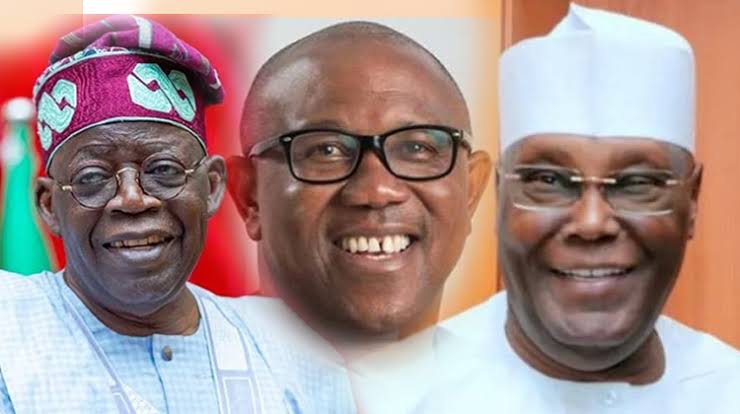
Over the past week, there were lots of important stories from around the African continent, and we served you some of the most topical ones.
Here is a rundown of the backstories to some of the biggest news in Africa that we covered during the week:
1. Battle for Nigeria’s presidency intensifies as gladiators move to Supreme Court
The battle for Nigeria’s presidency is springing up new and interesting turns with every passing day as the main gladiators are now putting their fate in the Supreme Court for a resolution of the dispute.
While Peter Obi, the candidate of the Labour Party in the disputed February 25 election which was won by Bola Tinubu of the All Progressives Congress, has been subtle in his quest to retrieve what he terms as his stolen mandate, the presidential candidate of the Peoples Democratic Party, Atiku Abubakar, has been doing everything possible to churn out evidence which he believes will nullify Tinubu’s victory.
The former Vice President’s battle has seen him go as far as the United States where he filed a motion on which Judge Nancy Maldonado of the District Court of Illinois ordered the Chicago State University where Tinubu claimed he graduated from, to release Tinubu’s academic records.
Though some lawyers argue that the Supreme Court of Nigeria does not admit new evidence after an appellate court ruling, Atiku is not giving up as he has filed a fresh motion seeking leave of the apex court to present fresh evidence to support his case.
In the motion he filed on Saturday through his team of lawyers led by Chief Chris Uche (SAN), Atiku said the evidence he was seeking to tender before the apex court would further establish his allegation that Tinubu submitted forged documents to the Independent National Electoral Commission, (INEC), as his qualification to participate in the presidential election.
Atiku believes that by submitting the “forged” documents, President Tinubu had “committed a twin offence of forgery and perjury, and therefore deserved to be sacked from office by the Supreme Court.”
Atiku, who is also seeking the permission of the court to tender Tinubu’s academic records which were handed over to him by the CSU on October 2, says he wants to prove that the documents Tinubu presented were forged.
In his motion, the PDP flagbearer prayed the court for, among other things, an order granting him leave “to produce and for the court to receive fresh and additional evidence by way of deposition on oath from the Chicago State University for use in this appeal to wit: the certified discovery deposition made by Caleb Westberg on behalf of Chicago State University on October 3, 2023, disclaiming the certificate presented by the 2nd respondent, Bola Ahmed Tinubu to the Independent National Electoral Commission.”
He also prayed the apex court to “receive the said deposition in evidence as exhibit in the resolution of this appeal and to further make order or orders the apex court may deem fit to make in the circumstances of the case.”
While Nigerians await with bated breath to see if the Supreme Court would accept Atiku’s new evidence, supporters of President Tinubu believe the former VP is merely chasing shadows as, according to Aviation Minister, Tinubu is as clean as a whistle and as white as snow.
2. Another one gets away as Cameroon loses basketball star, Joel Embiid to USA
Cameroon’s loss of Philadelphia 76ers power centre, Joel Embiid became USA’s gain after the NBA/MVP elected to represent the star-studded US Dream Team at the 2024 Paris Olympic games.
Before deciding to play for the USA, Embiid had the option of choosing either his native Cameroon or his second adopted country, France, but as often witnessed with many African players, the lure to represent the US was too much for the Yaoundé-born Joel.
Embiid, who grew up in Cameroon and honed his skills in the courts of the country’s capital before moving to America at the age of 16, made his position known at a meeting with USA Basketball managing director, Grant Hill, declaring that it was an easy decision for him as he had been in the country for such a long time and now felt he was an American.
And to cap it all, he said his son was American and that made it much more easy for him to take the decision.
“I’ve been here for such a long time,” Embiid said during the meeting which held at Fort Collins, Colorado, where the 76ers are having their training camp.
“For the past few years, every decision I’ve made has been based on just family. My family, my son, and having the chance to represent a country like the US, with my son being born here. I love my home country, but I really wanted to play in the Olympics.
“After talking to my family, I knew it had to be the American team. I want to play with my brothers in the championship. I want to play for my fans because they’ve been incredible since the day I arrived here.
“But above all, I want to pay tribute to my son who was born in the United States. I want my boy to know that I played my first Olympics for him,” he stated.
Embiid joins a growing list of African-born basketball stars who chose to play for the United States, including the most famous of them all, Hakeem Olajuwon who also left Nigeria as a 16-year-old boy and ended up as one of the most decorated NBA players of all times, while also turning out for the American team.
3. MohBad: One death, multiple suspects
The mysterious and suspicious demise of Nigerian Afropop musician, Ilerioluwa Oladimeji Aloba, popularly known as MohBad, is one death that has continued to cause reverberations across the length and breadth of the country and beyond.
Though a lot people may not have known MohBad in his short sojourn on earth, his death has definitely made him very popular, especially with the indictment of famous singer, Azeez Fashola, otherwise known as Naira Marley, who was once MohBad’s mentor and had signed him to his Marlin Record before they fell out.
Investigations into the unfortunate death of MohBad has so far thrown up more suspects than expected, with the
Lagos State Command of the Nigeria Police Force naming as many as 26 suspects whom it said played different roles directly and indirectly, in events that led to the ultimate death of the 27-year-old rising star on September 12.
In a press conference during the week, Police Commissioner, CP Idowu Owohunwa said the police had identified and quizzed 26 people, and five suspects were identified, arrested, detained and interrogated on their alleged roles in the sequence of events that led to the singer’s death.
The police boss identified the principal suspects to include an auxiliary nurse, Feyisayo Ogedengbe, who allegedly administered an injection on the late Mohbad, as well as his close friend, Ibrahim Oluwatosin Owoduni, aka Prime Boy.
The police also mentioned one Ayobami Sodiq, aka Spending, as being complicit in the homicide case for allegedly inviting Ogedengbe, an unqualified and unregistered nurse, to treat Mohbad.
According to the police, there is strong evidence connecting Naira Marley, and Lagos celebrity, Sam Larry, with cyberbullying, threat to life, assault occasioning harm, and conduct likely to cause a breach of the peace against the deceased in his lifetime.
The CP said that files concerning the investigation had been sent to the Directorate of Public Prosecutions for legal advice, and urged Nigerians and indeed fans of the late music sensation to be patient for the police to unravel the mystery behind his demise.
4. Ugandan opposition leader, Bobi Wine gets into trouble again
It was another terrible time for Ugandan musician-turned-politician, Robert Kyagulanyi, aka Bobi Wine, as he was arrested on arrival at the Entebbe International Airport in Kampala, the country’s capital, on his return to the country.
According to his party, the National Unity Platform (NUP), Wine was “grabbed” by “government goons” who “violently arrested him upon his return to Uganda”, and taken into house arrest.
“Bobi Wine flew in from South Africa on Thursday, via the Rwandan capital, Kigali, following a series of international engagements. His supporters had planned to welcome him at Entebbe International Airport and accompany him to his home in a huge march, but the police said this was illegal,” the party said.
“The cowardly regime has arrested our president upon arrival at Entebbe Airport. We set out to receive him today, but the panicky regime security could not even allow him into immigration,” the NUP leader in the Ugabdan parliament, Mathias Mpuuga, told journalists.
Though the Ugandan police had denied arresting Wine, his supporters believe his arrest is another ploy by the President Yoweri Museveni government to harass and intimidate the opposition leader who is seen as the only candidate capable of upsetting the incumbent in next year’s election.
“Disregard rumours of his arrest by propagandists,” police spokesman, Patrick Onyango told journalists, saying the security agents had only accompanied Wine to his residence in Magere, Kasangati.
The arrest of the popular former pop star was not the first time as he has had several brushes with law enforcement officials since he made his intention of challenging Museveni, who has held office for almost 40 years, official.
Wine has been arrested on numerous occasions and arraigned on several charges including treason, incitement and corruption.
5. France’s influence in Niger wanes further as troop withdrawal begins
During the week in review, France made an announcement that it would begin pulling out its over 1,500 troops from Niger Republic following the July 26 coup which toppled President Mohamed Bazoum, a known ally of the French.
“We will begin our disengagement operation this week, in good order, safely and in coordination with the Nigeriens,” the French military headquarters said in a statement.
“Coordination with the Niger armies is essential to the success of this maneuver. All measures have been taken to ensure that the movements take place in an orderly and safe manner,” the statement added.
The withdrawal of the French troops came a week after President Emmanuel Macron announced that the European country would pull out its forces after their efforts at persuading the military junta to reinstate Bazoum failed, officially ending its military presence in the coup-hit West African nation.
Before the announcement of the withdrawal, France had taken the first step by recalling its ambassador, who had earlier been given an ultimatum to leave the country by the junta.
Some analysts believe the turn of events will go a long way to free Niger from the shackles of the former colonial power, ending what they believe was neo-colonialism. They argue that it will also send a statement to other African countries who still maintain strong, but unfair, ties with their former colonial masters.
What this also means is that French influence in the Sahel region of West Africa is gradually petering out with the likes of Mali, Burkina Faso and Guinea electing to break away from what some call “its stranglehold”.
You may like
-


All my tough policy decisions are in Nigerians’ interest— Tinubu
-
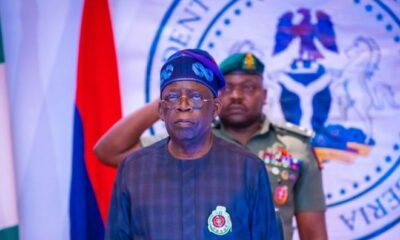

Nigeria: President Tinubu identifies illegal mining as source of terrorism financing
-


Yoruba secessionist group seeks exit from Nigeria, writes open letter to Tinubu
-


‘Reconsider your anti-people policies, they are causing hardship, insecurity in Nigeria’— PDP tells Tinubu
-


Nigeria destined to become major global economy under Tinubu— VP Shettima
-
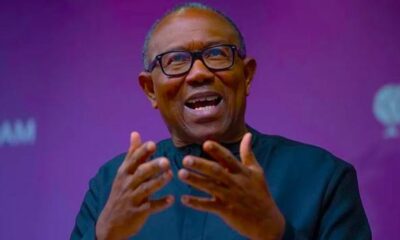

Behind the News: All the backstories to our major news this week
Behind the News
Behind the News: All the backstories to our major news this week
Published
5 days agoon
April 22, 2024
Over the past week, there were many important stories from around the African continent, and we served you some of the most topical ones. Here is a rundown of the backstories to some of the biggest news stories in Africa that we covered during the week:
Nigeria’s big feat against meningitis
Nigeria made a significant step in its fight against the World Health Organization (WHO) announced on Monday that Nigeria is the first country in the world to give out Men5CV, a “revolutionary” new vaccine. People are getting sick more in Nigeria than anywhere else in Africa. They say that the number of cases each year went up by 50% in 26 African countries that are known to have a high risk of meningitis.
Nigeria is the first country in the world to have given this vaccine which protects against five strains of the meningococcus bacteria. The Vaccine Alliance (Gavi) pays for the vaccine and emergency vaccination operations.
In Nigeria, between October 1, 2023, and March 11, 2024, there was an outbreak of Neisseria meningitidis (meningococcus) serogroup C that caused 1742 suspected cases of meningitis, 101 confirmed cases, and 153 deaths in seven of the country’s 36 states. These states were Adamawa, Bauchi, Gombe, Jigawa, Katsina, Yobe, and Zamfara.
Gavi also pays for the global meningitis vaccine stockpile and helps low-income countries get regular meningitis shots. Nigeria is one of 26 countries in Africa where meningitis is very common. It is in an area called the African Meningitis Belt. The number of meningitis cases reported each year in Africa rose by 50% last year.
Being a serious infection, meningitis makes the membranes (meninges) that cover the neurons in the brain and spinal cord swell up. Viral, bacterial, fungal, and parasite pathogens are some of the things that can cause meningitis. Headaches, fevers, and stiff neck are common signs. Bacterial meningitis is the worst kind. It can also lead to septicemia, which is blood poisoning, and people who get it can become severely disabled or die within 24 hours.
Besides Nigeria’s meningitis vaccine campaign, the international summit on meningitis in Paris will be a big step toward ending the disease as leaders will meet to celebrate progress, discuss problems, and decide what to do next.
Britain /Rwanda migration deal remains stuck
Rishi Sunak’s plans to send asylum seekers to Rwanda took another defeat this week when they were turned down again by the upper house of parliament in Britain. The parliament came up with changes that would slow down the policy but not stop it. The leader of the country thinks this will help his party win the next election.
Last year, the British government said it was going to send thousands of refugees back to the East African country. This was done to stop people from trying to get protection by crossing the English Channel in small boats from France. Part of an agreement worth £148 million is the idea.
Despite a Supreme Court’s ruling against the controversial move, Sunak has pushed to enact the law through parliament, praying that British courts should consider Rwanda a safe place to visit and that people should only be able to appeal in very rare situations. Europeans have become worried about people coming in illegally from the Middle East and Africa these days. As of June 2023, a record 45,000 people had flown in small boats across the English Channel.
Since Monday, when the House of Commons turned down the House of Lords’ second set of plans to change the new laws, they tried again. The House of Lords is Britain’s appointed upper house. But it’s not likely that the move will stop the bill from being passed this week. If it does, it will become law.
Ahead of the elections later this year, Sunak has put a lot of political capital into the Rwanda plan. He says it will help him keep his word to stop small boats carrying thousands of people who are trying to get into Britain illegally.
About 14.4% of the UK’s population, or 9.5 million people, were born outside of the UK in 2021. A record 45,000 people, mostly from France, crossed the English Channel in small boats last year. More than 11,000 people have been here so far this year. Getting rid of illegal immigration is one of Prime Minister Rishi Sunak’s top objectives.
Burkina Faso takes further steps from France
West African country, Burkina Faso has continued its diplomatic stance against former colonialist, France as it expelled three French diplomats allegedly being involved in actions against the government. The West African country, under military rule like five others in the subregion in a letter sent April 16 to the French embassy said that the three diplomats, two of whom were named as political advisers, were told they were not welcome in the country and had 48 hours to leave.
Sources quoted by Reuters said the officials were kicked out because they met with people from the public. There have been five coups in the area in the last three years. Most of them were linked to ties with France. The latest coup in Niger could make things harder for food markets in Nigeria and other West African countries, the World Bank said not long ago.
Around the world, rights groups, and other interest bodies claim that the junta restricts the freedom of speech and is scaring off critics while it tries to deal with a security crisis caused by rebels with ties to Iran and Al-Qaeda.
Last year, the government announced that it had suspended the 2018 military accord with France, though it still wanted support in the form of equipment. France deploys about 400 special forces soldiers in Burkina Faso, which the military government rules, but relations have deteriorated and tensions have soared in recent months.
Burkina Faso is one of the poorest in the world, and over the past ten years, a war that started in Mali and spread across the Sahel has killed thousands of people. People in the country are more against France now than they were a few months ago because they think that France’s armed presence has not made things safer, expelling its diplomatic might just be another low in their relations as the wave against the former European colonialists continues across the subregion.
Nigeria: ‘World beater’ Onakoya sets new chess record
Nigerian chess prodigy, Tunda Onakoya began an attempt at a 58 hours play of the game to surpass the world record of 56 hours, nine minutes, and 37 seconds, which was set by the Norwegian duo of Hallvard Haug Flatebø and Sjur Ferkingstad in 2018. Onakoya has broken the record set in 2018 by 56 hours. He also wants to raise $1 million for his charity, “Gift of Chess and Chess in Slums Africa,” which he has used to help vulnerable children in Africa.
For 60 hours straight, Onakoya played in Times Square in New York City to raise money for the schooling of poor children in Africa as he played from Wednesday morning until early Saturday morning, having been inspired by the huge number of people who wanted to see him succeed.
Within Nigeria, Onakoya is well known for starting the Chess in Slums project in 2018 in Ikorodu, which is on the outskirts of Lagos. Often outcast young people, many of whom don’t go to school and work to support their families, can learn to play chess at the organization with the country having one of the highest rates of child absence from school in the world, with more than 10 million kids of school age not going to school.
The Guinness Book of World Records has not yet confirmed the new record. This process can take up to two weeks. Whatever the case, Onakoya’s accomplishment has already had a big effect, showing that even from “corners of disadvantage,” big changes are possible.
Behind the News
Behind the News: All the backstories to our major news this week
Published
2 weeks agoon
April 14, 2024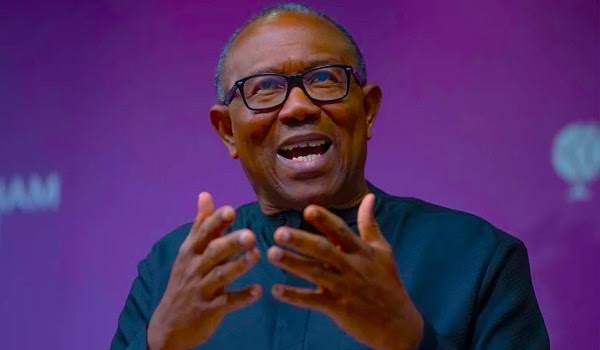
Over the past week, there were lots of important stories from around the African continent, and we served you some of the most topical ones.
Here is a rundown of the backstories to some of the biggest news in Africa that we covered during the week:
1. Nigeria, so rich, yet so poor: The sad tale of Africa’s sleeping giant
A few years ago, Nigeria was regarded as the giant of Africa in terms of the wealth deposits in the country and the potentials of becoming one of the richest countries in the world.
Apart from its vast human and capital resources, statistics have also revealed that Nigeria has well over 300 mineral resources deposited in every part of the country that could make the most populous black nation in the world one that others will look up to.
Many Nigerians have, over the years lamented the plundering of the Nigerian economy by successive administrations and thieving politicians who loot the country’s wealth and leave the nation in a very dire situation.
The latest to add his voice to the situation is the presidential candidate of the Labour Party (LP) in Nigeria’s 2013 general elections, Peter Obi, who, during the week, lamented the dwindling economy, hardship and poverty that Nigerians have been made to wallow in, especially since the coming of President Bola Tinubu on May 29, 2023.
The current administration has inadvertently plunged the nation into unbearable economic crisis with a majority of the masses finding it difficult to make ends meet.
Obi who expressed his disappointment at what the country is going through, emphasized that Nigeria
has no reason to be poor due to rich natural resources Nigeria is blessed with in every part of the country.
Obi made the assertion during a courtesy visit to the Emir of Zazzau, Ambassador Nuhu Bamali, at his palace in Kaduna State, northern Nigeria, bemoaned what he described as a waste of the vast arable lands in the country, especially in the North.
“Nigeria has nothing to do with poverty if those of us who are political leaders including my humble self had decided to serve the country faithfully,” the former Anambra State governor said while addressing the gathering.
“God created us with a lot of resources, and if those resources are properly put in place, we will pull most poor people out of poverty.
“The way things are in our country today requires that all of us must get involved in one way or the other.
“Because if we do, Nigeria will not have anything to do with poverty. I will always say this anytime I have the opportunity because Nigeria is one of the countries in the world that is blessed with everything that is required.
“The current socioeconomic instability in the country requires that all citizens and leaders come together and see how the situation could be salvaged,” he stressed.
2. ‘Never again!’ as Rwanda commemorates genocide’s 30th anniversary
Sunday, April 7, was a day of sober reflection for the eastern African nation of Rwanda as it marked the 30th years the devastating genocide that claimed more than 800,000 people, largely from the Tutsi ethnic group and moderate Hutus, in what has been described as one of the bloodiest massacres of the 20th century.
The killing spree in the tiny country lasted 100 days from April to July 1994 before the Rwandan Patriotic Front (RPF) rebel militia led by incumbent President Paul Kagame took the capital Kigali.
The genocide victims were shot, beaten or hacked to death in killings fuelled by vicious anti-Tutsi propaganda broadcast on TV and radio, with at least 250,000 women raped and sexually assaulted, according to UN figures.
But before then, the country had witnessed one of the worst cases of intra-nation violence which was was triggered by the assassination of Hutu President Juvenal Habyarimana on the night of April 6, when his plane was shot down over Kigali, which triggered the rampage by the Hutu extremists led military and the Interahamwe militia made up largely of Hutus.
However, the 30th anniversary of the genocide which was celebrated with solemn tributes to the victims, also saw a collective resolve that never again will the country experience such a devastating episode.
Since coming into power, Kagame has done everything to keep the country together and take away the memory of the genocide and aid its healing process.
Part of the measures instituted by the Kagame administration include no mention of ethnic groups on Rwandan ID cards, while secondary school students learn about the genocide as part of a tightly controlled curriculum.
Today, Rwanda had found its footing and has become one of the fastest developing countries in Africa with the western world falling over itself to do business with the country.
Since the end of the genocide and the assumption of office by Kagame, the president has pulled a tight string and every year, he keeps emphasising that there would never be a repeat of the sad incident that took the country to the brink.
3. One week, one trouble for Hichilema as alliance in popularity challenge
The outgone week saw another testament of Zambian President Hakainde Hichilema’s one week, one trouble after the coalition, the United Kwacha Alliance (UKA), challenged to test his popularity by conducting early presidential elections.
The coalition threw the challenge to Hichilema after the police declined its request to organise a public rally citing security concerns.
In a response, the alliance which believed they were denied what is constitutionally their fundamental rights, said if Hichilema thought he was popular with the masses, he should test such popularity by calling for an early election.
Reacting to the denial, the coalition, in a statement by its Chairman, Sakwiba Sikota, said it was not surprised at the response of the Zambian Police force which is controlled by the ruling UPND.
The alliance however, said it would not relent in its task of liberating the Zambian people from this repressive UPND regime.
The UKA also accused President Hichilema and the UPND of violating the rights of Zambians who don’t support their ineffective and short-lived government.
This new faceoff is one among a series of attacks and accusation levelled at Hichilema by opposition figures over his running of the government.
The Zambian President has come in for severe criticism with his style of leadership which is typical of the kind of politics being played by most African leaders who, more often than not, tend to change once they get into office.
Hichilema on his part, has not acted differently as he has also shown that his government is not different from what is obtained in most African nations.
while assuring that the UPND government could not stop the people’s movement.
4. Nigeria’s northern elders group pass vote of no confidence on President Tinubu
The current situation in Nigeria where the masses are reeling in unbearable hardship and poverty and a result of the policies of President Bola Tinubu, has forced a group of elders from the Northern region to pass a vote of no confidence in him.
The group of eminent political leaders and leaders of thought under the aegies of the Northern Elders Forum during the week, said it regretted campaigning for Tinubu and getting the people of the region to vote for him in the 2023 presidential election.
The Elders Forum, in a statement, said they deeply regret voting for Tinubu and vowed not to repeat mistake in 2027 which is the next general election cycle.
The eminent group of elders, in the statement issued by its spokesman, Abdul-Azeez Suleiman, said it is disappointment with the Tinubu administration, and would prioritize unity and consensus in selecting a candidate for the highest office in the land.
“The North made a mistake in voting Bola Tinubu to the presidency in 2023, and it is unlikely that they will repeat the same error in the future,” the Forum said.
“The North have learned from their past misstep and will strive to select a candidate who can unite the country and govern in the best interests of all Nigerians.
“Moving forward, the North will be more cautious in selecting a candidate for the presidency. They will prioritize someone who is seen as more inclusive, less controversial, and more aligned with the interests of all regions of the country.
“The mistake of supporting Tinubu in 2023 has taught them the importance of unity and consensus in selecting a candidate for the highest office in the land,” Suleiman reiterated.
The import of the threat by the Northern eldets is another clear sign of the disenchantment ordinary Nigerians have felt for President Tinubu despite his constant assurances that all his policies are meant to revamp the country’s economy and make life better for the people.
A vote of no confidence coming from elders of a region that accounts for the highest number of votes in Nigeria would definitely spell doom for the President in the next election and only a change of fortunes in the lives of the people can buck a change.
5. 10 years of schoolgirls’ abduction: Still no end in sight
Ten years ago, when the dreaded Boko Haram insurgents struck the Government Girls’ Secondary School in Chibok in Borno State and abducted 276 female students all in their early teens, many Nigerians did not believe that till now many of the girls will still be in captivity.
The government of then President Goodluck Jonathan promised to rescue the girls but a year later when it left power, they could not rescue all the girls.
Then came the regime of President Muhammadu Buhari and another round of promises rented the air. With his background as an accomplished Army General, it was a given that in no time, the girls would be rescued and reunited with their families.
But 10 years have gone by and about 89 of the victims are still missing. Many of them have been rescued, some have managed to escape while reports indicate that many of them have been married off to the terrorists and have become mothers.
And as Nigeria marks the 10th year commemoration of the abduction of the schoolgirls, there is no end in sight yet for the release of about 89 of the girls still remaining in captivity.
On this 10th year commemoration of their being in captivity, Nigerians are looking forward to the day the remaining girls, especially the poster girl of the abductees, Leah Sharibu, will be free and join up with their families and loved ones.
EDITOR’S PICK
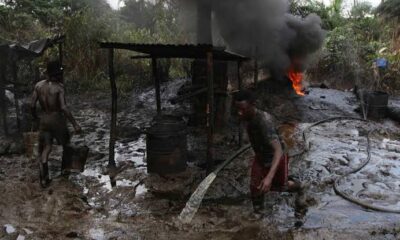

Nigeria loses N1.29trn annually to crude oil theft, vandalism— Reps Speaker
Speaker of Nigeria’s House of Representatives, Hon. Abbas Tajudeen, has revealed that the country loses a whopping sum of N1.29...


Intel Liftoff Hackathon 2024 calls for applications from African AI startups
Applications for the 2024 cohort of Intel Liftoff Hackathon has opened for African AI startups designed to bring together aspiring...


African men run away from single mothers— Joselyn Dumas
Veteran Ghanaian actress and media personality, Joselyn Dumas, has lamented the fact that most African men shy away from getting...


Former Zambian captain Rainford Kalaba discharged from hospital after near-fatal accident
Former Zambian national team captain, Rainford Kalaba, has been discharged from hospital weeks after he was involved in a near-fatal...


‘Cyber Act fails to protect the vulnerable,’ Student demands media inclusivity for persons with disabilities
Peter Libila, a student at Icof University’s Chipata campus, highlights the lack of awareness among individuals with disabilities and those...


All my tough policy decisions are in Nigerians’ interest— Tinubu
President Bola Tinubu of Nigeria has insisted that all his tough policy decisions and reforms have been taken with the...


Nigerian oil regulator implements regional fuel standards
Nigeria’s oil authority has clarified that the recent changes to diesel fuel sulphur content standards are part of a regional...


IMF predicts Kenya’s economy to overtake Angola
The International Monetary Fund (IMF) says that this year, Kenya will pass Angola to become the fourth biggest economy in...


S’Africa lengthens troop deployment in Mozambique, Congo DR
President Cyril Ramaphosa said in a speech that South Africa’s military would keep sending troops to Mozambique and the Democratic...


Nigeria govt cancels 924 dormant mining licences
Nigeria’s minister of mines said on Wednesday that 924 expired mining licences had been cancelled immediately. The country now wants...
Trending
-

 Culture2 days ago
Culture2 days agoNamibia govt condemns tourists posing naked on Big Daddy Dune
-

 Tech2 days ago
Tech2 days agoNigeria’s NGX Group enters into strategic investment partnership with Ethiopian Securities Exchange
-

 Sports18 hours ago
Sports18 hours agoFormer Zambian captain Rainford Kalaba discharged from hospital after near-fatal accident
-

 Metro20 hours ago
Metro20 hours ago‘Cyber Act fails to protect the vulnerable,’ Student demands media inclusivity for persons with disabilities


